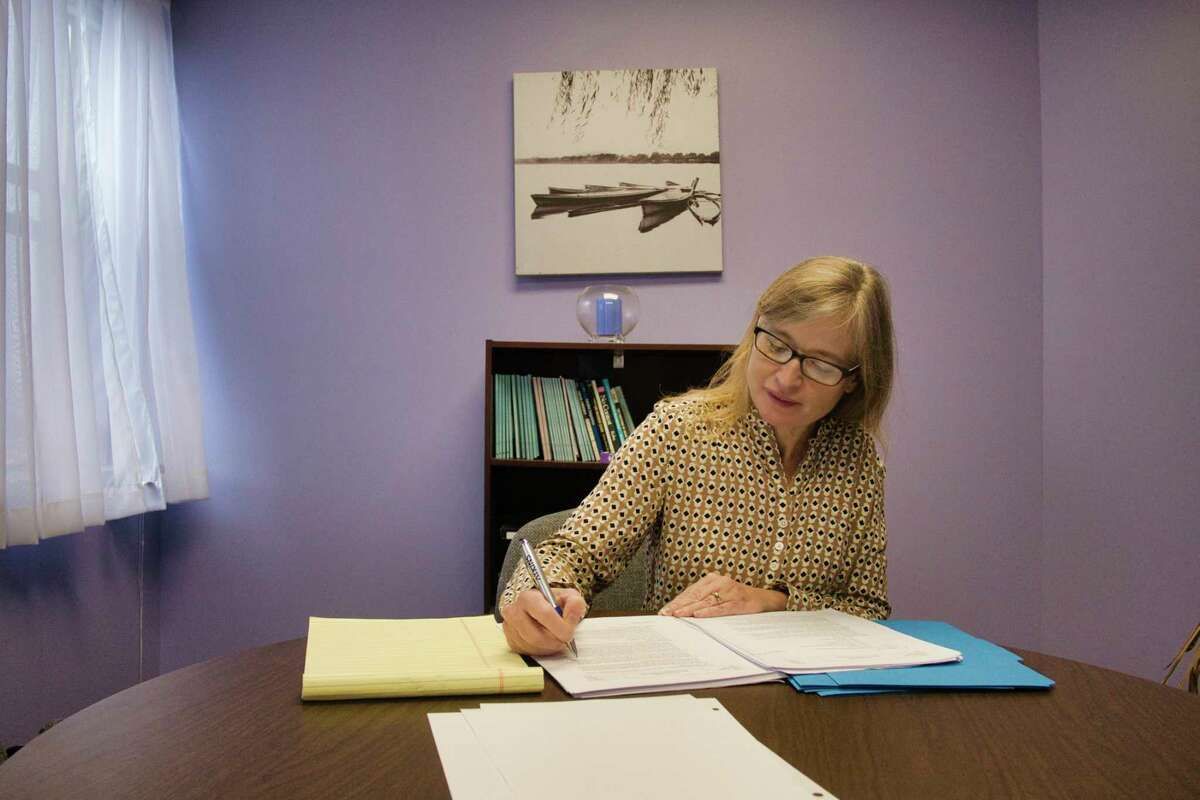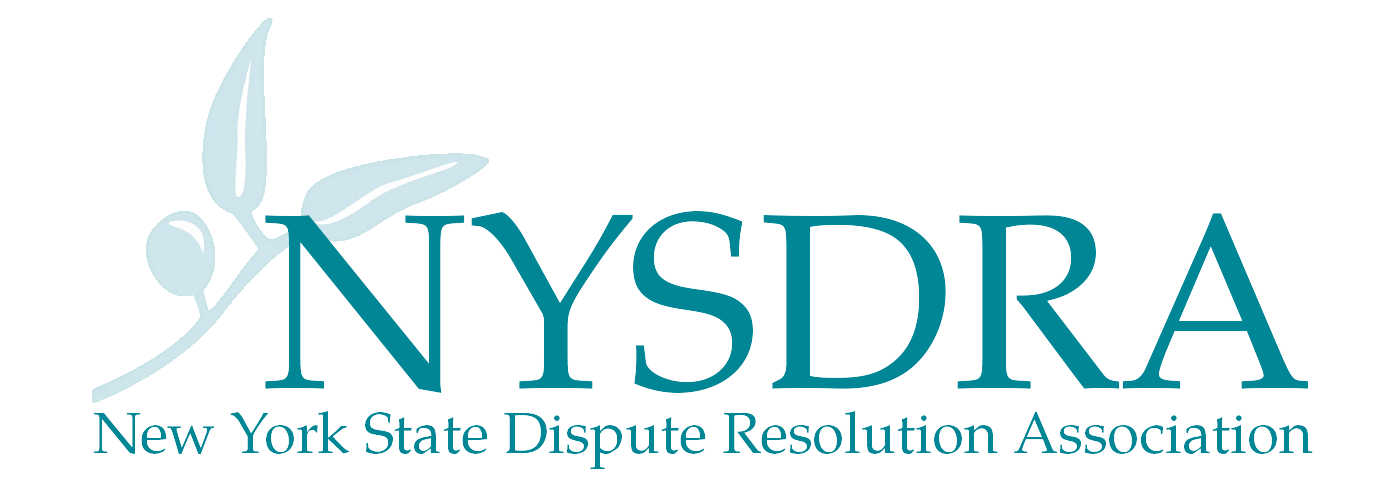Mediation Matters nonprofit eases conflict resolution

Sarah Rudgers-Tysz, executive director of Mediation Matters, works in one of the mediation rooms at the organization's office on Tuesday, Oct. 26, 2021, in Albany, N.Y.
Paul Buckowski/Times Union
Conflict — an inescapable gremlin that follows us to work, home and into our dreams — is difficult to navigate but necessary, so much so that the state has a dedicated association for it.
New York is home to 62 conflict resolution centers, which are tasked with helping communities sort through everyday matters that may grow tense. Mediation Matters is the Capital Region’s go-to mass of centers for such matters.
The nonprofit, first opened in 1979, houses three offices in the Capital Region and offers services to all residents, organizations and companies in six counties — Albany, Rensselaer, Saratoga, Schenectady, Warren, and Washington.
“All of our processes and our purpose in life is to support our fellow community members ... to find constructive ways to manage either conflict or difficult conversations in their lives,” Sarah Rudgers-Tysz, Mediation Matters’ executive director, said.
While you can be referred to Mediation Matters by a court, locals of all ages can freely and confidentially use their services as well. The organization is available to assist mitigating family disputes, small claims or even just facilitate difficult conversations with others, she explained.
While you can be referred to Mediation Matters by a court, locals of all ages can freely and confidentially use their services as well. The organization is available to assist mitigating family disputes, small claims or even just facilitate difficult conversations with others, she explained.
On any given day, mediators can resolve disputes between landlords and tenants, over family childcare schedules, farm loans or special education disputes at schools.
“The range of types of situations that we involved in are as diverse as the community itself,” Rudgers-Tysz said. The Capital Region centers employ 12 staff members and has about 30 volunteers. Mediators are required to take 30 hours of basic training and cycle through additional specialized learning for conflict resolution, teaching volunteers how to be objective, confidential and empathetic.
The center mediates between five and 10 individual conflicts weekly and thousands a year. Mediation Matters also has programs to train companies and organizations alongside youth programs it hosts at schools. In some cases, a Mediation Matters staffer is directly embedded in the schools. For others, the agency partners with a school.
Community members can access the nonprofit’s services at little or no cost given it is funded by the New York State Unified Court System, among other sources. Mediation Matters bills organizations it provides training for, but only charges about $25 per person for individual sessions, and waives the fee for those who cannot pay it.
One program trains students to become mediators, aiming to help students resolve conflict without violence. The organization has coordinated programs at Schenectady High and Mt. Pleasant Middle School, for example. Some peer mediators who started with the organization while in school have gone on to become staff members, Rudgers-Tysz said. “I think the biggest challenge is the empathy that's required, but it is such gratifying work,” she said. “Just watching the light bulb go on and (someone) feel like ‘Oh, I can do this.’ It's a really powerful thing. We all just embrace the idea that we know people have those strengths to work through and make decisions for their lives.”
Beatriz Roman started volunteering in 2016, after moving to the region two years before. When a friend asked if she wanted to be a mediator, she said she was “floored.” She had always admired her friend’s work and it hadn’t occurred to her that she, too, could get involved.
“I come from a very dysfunctional family ... (one) where there was no talking, there was no listening. I really admired that you could create enough trust in two sparring parties for them to understand this is a serious attempt at listening to each other,” she said.
So, when given the chance, her answer was a sure yes. Working in family and small claims mediation, Roman learned how to remain neutral during conflicts and facilitate conversations in a respectful manner that is open-ended and allows all parties to listen and feel heard.
“They're in charge of the negotiation. They're in charge of the outcome. And it's OK if they don't come to an agreement, but that they've listened to each other and heard each other's understanding of the problem,” Roman said.
And in time, she said she believes acting as a community mediator has changed her life.
